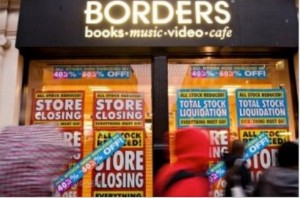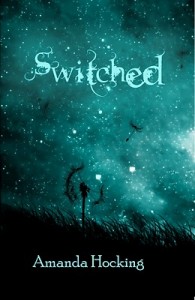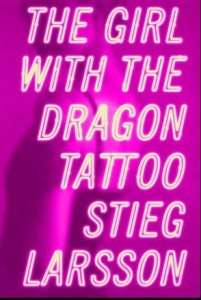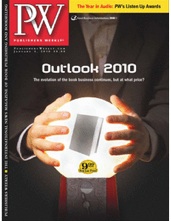Borders Going Out of Business
Tuesday, July 19th, 2011Borders, the bookseller that invented the chain superstore concept, has not found a buyer and will ask for approval to liquidate its remaining 399 stores (at its height, Borders operated 1,300 stores), reports the Wall Street Journal and the New York Times. The company plans to be out of business by the end of September. Nearly 11,000 people will be laid off.
CEO, Mike Edwards, did not blame a history of swiftly changing management and direction, but “the rapidly changing book industry, [electronic reader] revolution and turbulent economy.” (Shelf Awareness published a more insightful analysis of Borders problems in February).
Reuters reports, however, that Books-A-Million may buy some of the stores (fewer than 50).






